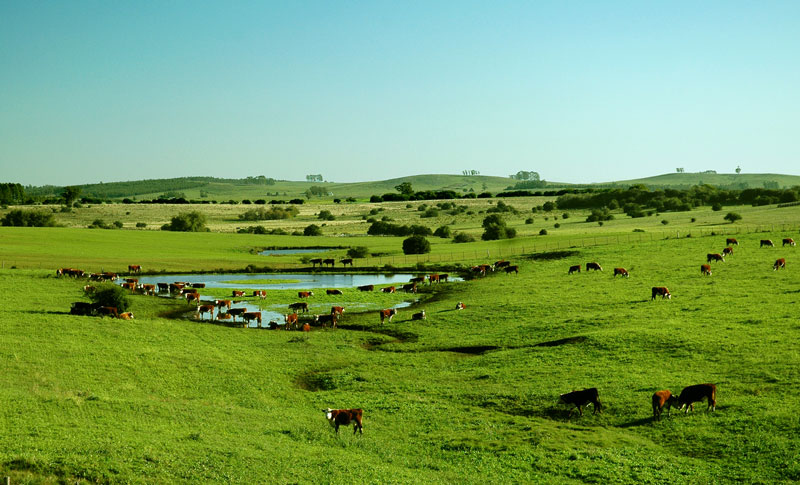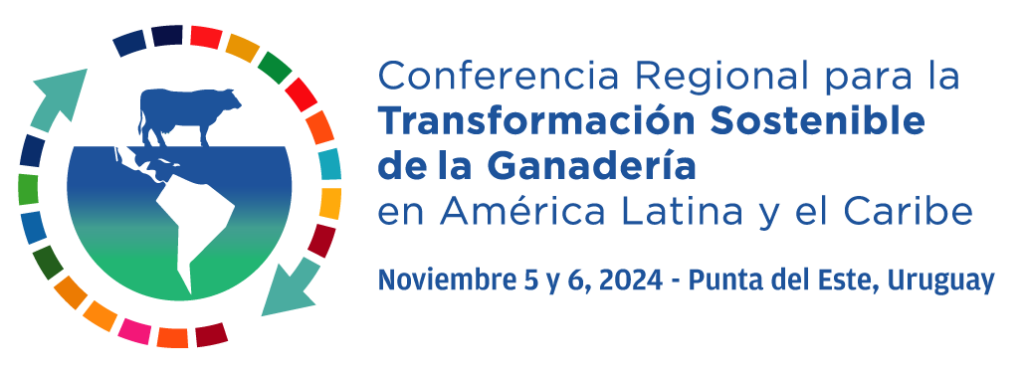Noticias
Producción ganadera sostenible: necesidad ambiental, alimentaria, económica y social
Por Andrés González Serrano, Oficial de Ganadería, Sanidad Animal y Biodiversidad de la Organización de las Naciones Unidas para la Alimentación y la Agricultura (FAO).
A nivel mundial, la producción ganadera aporta cerca de un tercio de la proteína que es consumida día a día, siendo esencial para la seguridad alimentaria y nutricional global. En América Latina y el Caribe, esta actividad no solo es crucial para la dieta de millones de personas, sino que también representa un pilar de la economía local.
De acuerdo con cifras de la Organización de las Naciones Unidas para la Alimentación y la Agricultura (FAO), en 2022 la ganadería representó el 46% del Producto Interno Bruto agrícola de nuestra región. Sin embargo, este sector enfrenta desafíos significativos, como la disponibilidad de recursos naturales para la producción, la creciente demanda de proteína animal y la necesidad de utilizar prácticas que aun siendo rentables disminuyan el impacto ambiental del sector. Estas problemáticas requieren atención urgente para garantizar la sostenibilidad en el sector y un aporte a la seguridad alimentaria.
La FAO proyecta que para el 2050 aumente el 20% la demanda global de proteína animal, escenario ante el cual América Latina y el Caribe tiene la oportunidad de consolidarse como un proveedor estratégico, ya que actualmente alberga al 8,5% de la población del planeta, pero posee el 28% del hato ganadero mundial.
Aun así, el aumento en la producción ganadera debe ser equilibrado con la preservación de los recursos naturales y la biodiversidad y con un énfasis en la sostenibilidad, y para eso debemos actuar cuanto antes.
En este contexto, la FAO, el Ministerio de Ganadería, Agricultura y Pesca y el Instituto Nacional de Carnes de la República Oriental del Uruguay, organizaron la primer Conferencia Regional para la Transformación Sostenible de la Ganadería en América Latina y el Caribe. El foco del evento se centra en la transformación hacia sistemas de producción ganadera más innovadores, resilientes y eficientes, que reduzcan el impacto ambiental y aumenten la accesibilidad de alimentos sanos en las diferentes cadenas de producción pecuarias, para lograr una Mejor Producción.
De esta forma, buscamos promover el intercambio de conocimiento y experiencias de la región para generar sinergias y equilibrios para la mejora de la productividad y producción animal.
La FAO, junto a otras entidades,ya ha comenzado a implementar iniciativas que apuntan hacia una producción ganadera sostenible, que integran soluciones basadas en la gestión optimizada de los propios recursos naturales, como proyectos de ganadería climáticamente inteligente, modelos agroforestales y silvopastoriles, y otras buenas prácticas relacionadas con la bioeconomía circular, como es el caso de la utilización de estiércol para abono y biocombustibles, y el uso eficiente de los servicios ecosistémicos y sus efectos protectores y armonizadores del medio ambiente.
Lo anterior no solo facilita la optimización de los recursos, sino que también incrementa el secuestro de carbono en los suelos. Además, al integrar especies adaptadas a las condiciones locales, como razas bovinas tropicalizadas, o como los camélidos sudamericanos en las zonas altoandinas, se fomenta una producción más diversa y resiliente.
Estos avances requieren el respaldo de políticas públicas efectivas. Es fundamental que los gobiernos diseñen incentivos que promuevan la sostenibilidad en el sector ganadero, facilitando el acceso de pequeños productores a recursos y tecnologías.
Abordar la producción ganadera desde una perspectiva sostenible no es solo una cuestión ambiental, es una necesidad económica y social.
La apertura estará a cargo del Presidente de la República Oriental del Uruguay Luis Lacalle Pou, el Director General de FAO Qu Dongyu, máxima autoridad de FAO, el Subdirector General y Representante Regional de FAO Mario Lubetkin.
Tres ministros de gobierno de Uruguay participarán de la apertura: De Ambiente Robert Bouvier, de Economía y Finanzas Azucena Arbeleche y de Ganadería Agricultura y Pesca Fernando Mattos. Además habrá representaciones en los paneles de IICA, FAO, integrantes de cuerpo diplomático, sector privado y sector público.
Se espera la participación de más de 700 personas.
El titular de INAC indicó que la Conferencia es una gran oportunidad para mostrar al mundo el rol colaborativo de Uruguay, no solo por esta organización de reunir a tantas voces valiosas en torno a la sostenibilidad ganadera sino para que se aprecie el sistema de producción uruguaya y por eso habrá una jornada de campo el día previo para los invitados y autoridades.
Para leer completa la bienvenida del Presidente de INAC Conrado Ferber.
La información detallada del evento se encuentra disponible en la web oficial de la Conferencia: ganaderiasostenible.inac.uy/

Presidente del Instituto Nacional de Carnes


